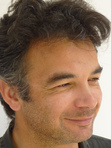On Magic and Science

Wizard worlds
So, you’ve got – as a writer – your carefully worked out world, complete with dragons, various branches of the faerie folk with names artfully changed to suggest that no, you really didn’t mean Elves like in Middle-earth, and, of course, magic. After all, what fantasy world would be complete without a bit of magic, a little sprinkling of wonder and strangeness across the boundaries of the mundane that hem us into our own world. And, what’s more, the book works! You find a publisher, the public read it, clamour for more, you are rolling in authorial clover (if not money; get real, this is a first novel after all). Time for the sequel. Ah, the sequel. Now, what exactly can Wizard Wiz do – and what can’t he do? What about the Witches? Broomsticks – that’s as read. But what other powers do they have? Better start working this out.
And this is precisely where so many fantasy worlds and fantasy authors start going wrong. Yes, as one goes deeper into a secondary world, you have to work things through and understand them more deeply, but the danger with magic is to start treating it as engineering with a veneer of Latin. So, taken to its conclusion, you have a sort of Tops Trumps version of magic, where strength 5 wizards with additional special powers are, literally, trumped by the authorial McGuffin of a blocking ability or the amulet or token that trumps other powers; it becomes a Marvel/DC universe, where fans (and the Lord knows I’m one of them) can spend enjoyable hours debating whether the Hulk would beat Thor: power trumps everything.

Engineering is magic, but not the right sort of magic
But this is not magic. This is to view magic through 21st-century, scientific eyes. To put it simply, magic is not science. Science proceeds by virtue of its method, which means that while it might take a genius such as Newton or Einstein to propose a new theory, once published it is possible for anyone of reasonable intelligence to follow the reasoning by which they came to their conclusions. Similarly, science is demonstrated by experimenters of genius, like Michelson and Morley, running tests to show if predictions match results. But, once the experiment has first been run, anyone following the same method should be able to replicate the results.
Science is repeatable. That’s its point. It might take a genius to find the path through the overwhelming array of data, but once the path is found anyone should be able to follow it. Any Tom, Dick or Harry can do it.
The point of magic is that any Tom, Dick or Harry cannot do it. A magician, a wizard might take years to learn a spell, a craft, a potion but even if you, the reader (or indeed, the would-be wizard), followed the same practices as diligently and for as long, there would be no guarantee that you could repeat the spell. Magic is personal and particular; in that it resembles elite sport or virtuoso musicians. I might practice batting for as long as Kevin Pietersen, working as diligently as he does, and yet at the end of it I would not be able to do what he does. Why not? The short answer: I don’t have his talent. The slightly longer answer: I do not have the combination of physical, mental and emotional characteristics that make him a great batsman – my deficiencies ranging from poorer eyesight and being a good six inches shorter through to lacking a taste for physical confrontation as confirmation of my own abilities.

Only 9,982 hours to go
Similarly with music. Pace Malcolm Gladwell, but 10,000 hours of practice might be necessary for mastery of an art, it is not necessarily sufficient for it. I could have set aside eight hours every day on the guitar – I did, for a number of years – and yet I never even came close to mastering the instrument, and this for a particular combination of physical and psychological reasons. To coin Albert’s law: practice is necessary for mastery of an art but it is not sufficient for it; you need talent too. And by talent I mean the particular combination of physical, psychological and spiritual traits that are necessary for a particular person to master a particular skill – and note that these will differ according to person and art.
Similarly with magic. A wizard is, by nature, singular. Defining magical laws, turning it into engineering, is to filter it through the wrong lens. Try applying the laws of performance to it, and you will be on stronger writing ground.

The Four Causes
As so often when writing fantasy, JRR Tolkien provides the best example. He barely mentions magic in The Lord of the Rings, and when the Elves do talk about it, they say that what they do is not magic as understood by mortals. And nor is it. Tolkien, being well grounded in Thomistic theology, understood better than most the Aristotelian underpinning of Elvish magic and its relationship to the four causes indentified by the Stagirite, to whit the formal, material, efficient and final causes, so Elvish magic, or art as they themselves more likely saw it, was the deep understanding of causation in relation to any object and the ability to see more clearly through to its true end, and bring that about. Tolkien distinguishes this from sorcery, where the ultimate aim is the subjugation of the free will of others to the sorceror – the greatest sin within Arda, for it seeks to subvert the supreme gift of Eru (God).
So, writers, when writing magic and wizards, banish thoughts of Warhammer outcome tables and video game power ups; think rather of Yo Yo Ma or Zinedine Zidane then apply that mixture of refinement, ability and the pursuit of perfection to magic and you won’t go far wrong.



